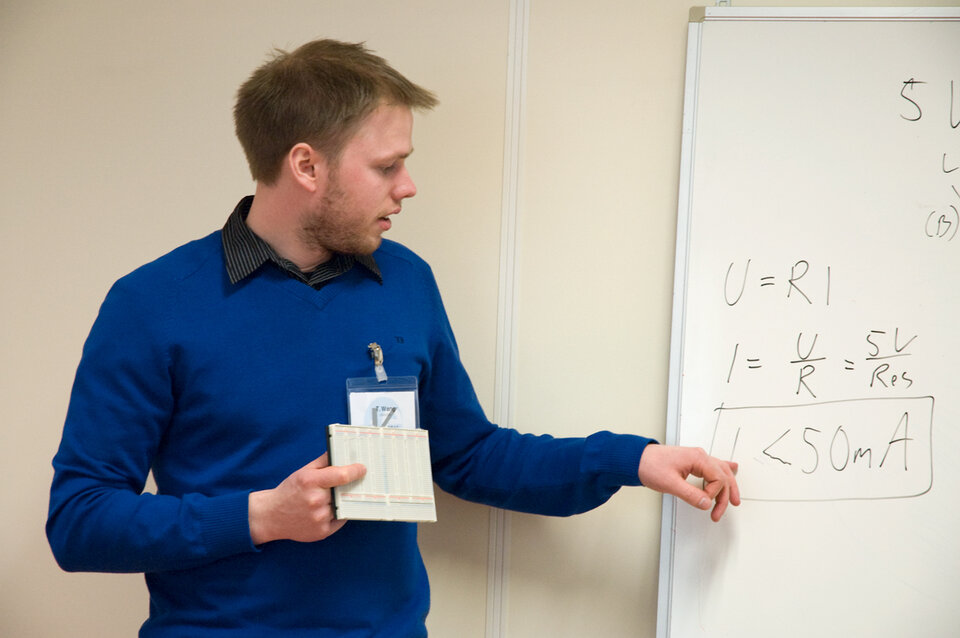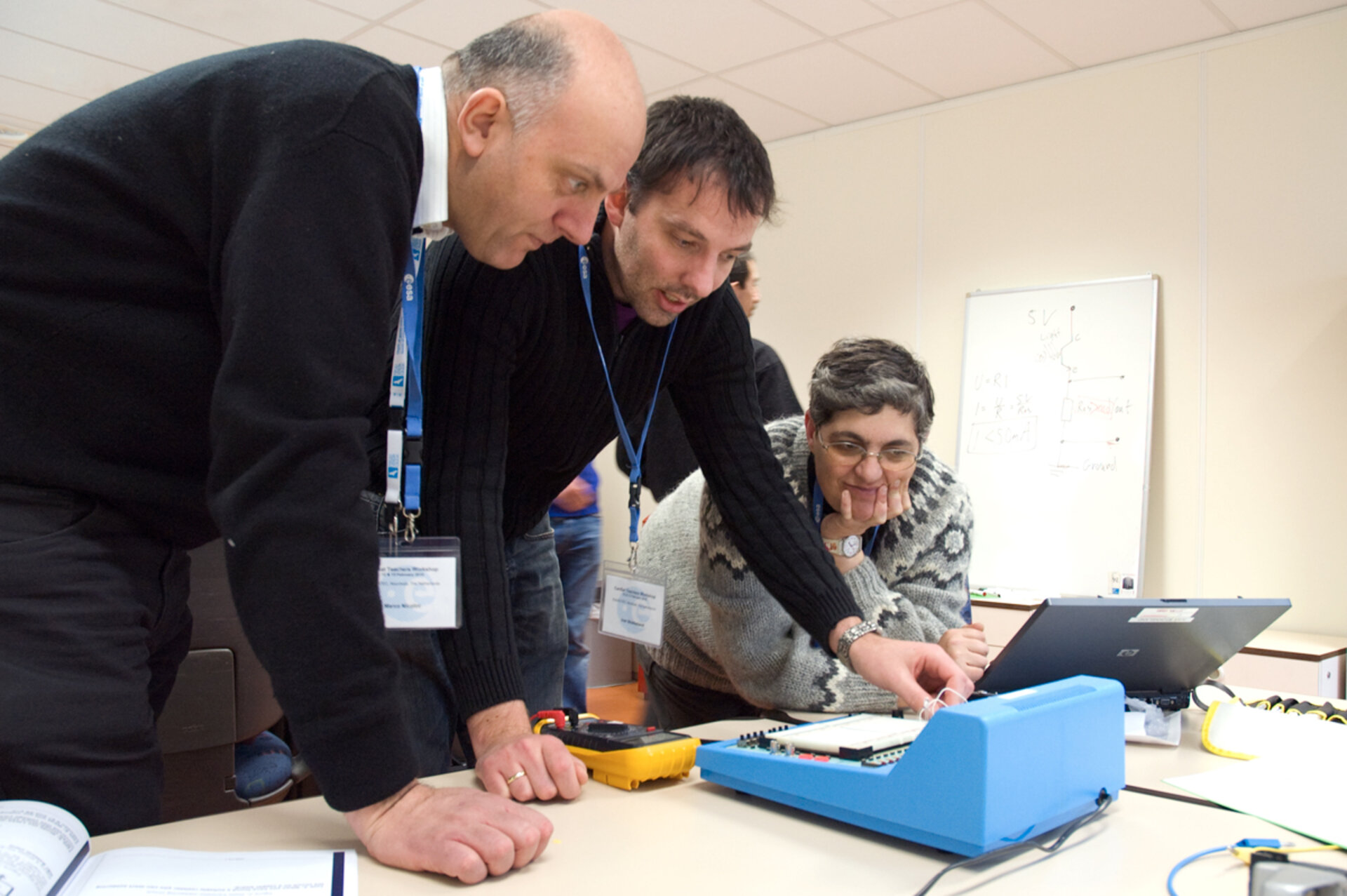CanSat teachers attend introductory workshop
Following the recent selection of 11 high school teams as winning entrants in the first European CanSat competition, a workshop for the teachers involved was held at the European Space Research and Technology Centre (ESTEC) in the Netherlands, on 12-13 February.

Over the coming months, the chosen teams, each from a different European country, will build their own small ‘satellite’, with the help of a kit in the form of a soda can. The ultimate objective of each team is to launch a CanSat on a rocket up to 1 km from the Andøya Rocket Range in Norway.
Of the 33 proposals received for the competition, 11 were selected.
They were:
- Brussels Vikings, Sint-Pieterscollege, Belgium.
- X-GymZR, Gymnazium Zdar nad Sazavou, Czech Republic.
- 2009x CanSat, Noerresundby Gymnasium, Denmark.
- Icaromenippus, 3rd General Lyceum of Mytilini, Greece.
- Laurel Hill, Laurell Hill School, Ireland.
- TASSONI, Liceo Scientifico Statale Alessandro Tassoni, Italy.
- Levanger CanCrushers, Levanger VGS, Norway.
- Reynaldosat, Escola Secondaria Professor Reynaldo dos Santos, Portugal.
- DeSoto, Colegio Retamar de Madrid, Spain.
- Hot ice, Rymdgymnasiet, Sweden.
- Eclipse, St Paul’s School of London, UK.

The final selection was based upon a number of key criteria, including the scientific and technical merit of the proposed mission, the programme of outreach associated with the team’s experiment, the distribution of work between the team members and the time that could be allocated to the project at school.
The introductory workshop, organised by the ESA Education Office, gave the teachers leading each team an opportunity to learn about the basic steps in building a CanSat and how to accomplish the mission objectives. With the assistance of experts from the Norwegian Centre for Space-related Education (NAROM), they were able to learn about data analysis and sensor analysis, data handling and transmission, software programming and building their own sensor. They were also able to tour part of the site, including the satellite testing facilities and the Space Expo at ESTEC.
The competition, which is organised in collaboration with NAROM, will take place 15-19 August 2010.





